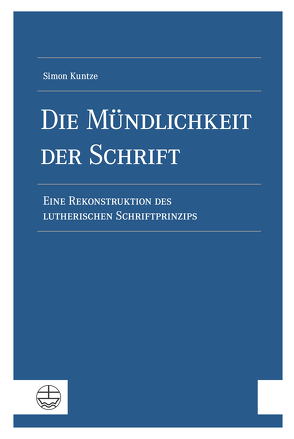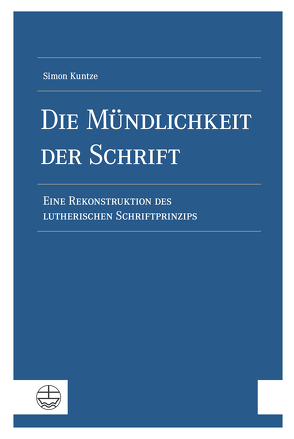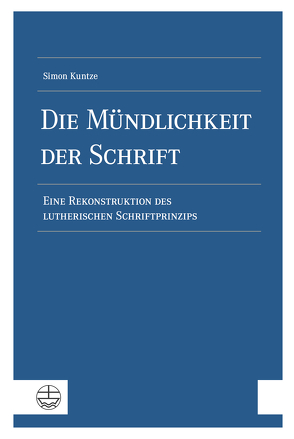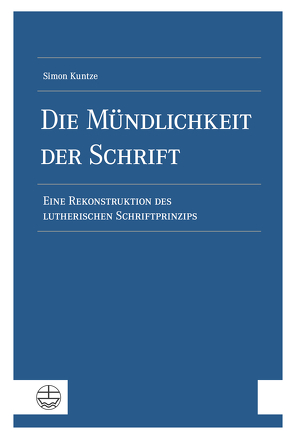
Der Rechtsanwalt Gustav Herzfeld (1861–1942), der wohlhabenden Familie Hallgarten-Herzfeld entstammend, gestaltete sein Leben zwischen New York, Berlin und Potsdam über die großen Zäsuren der deutschen Geschichte hinweg. Befreundet mit Persönlichkeiten wie dem „Vater“ der Weimarer Verfassung Hugo Preuß oder dem Ethnologen und Direktor des Berliner Völkerkundemuseums Karl von den Steinen, belebte Gustav Herzfeld seit der Jahrhundertwende das kulturelle Leben von Potsdam zwischen Jurisprudenz, Wissenschaft, Literatur und den schönen Künsten. Herzfelds weitläufige Familie, aus der Personen wie John Heartfield und Wieland Herzfelde international Berühmtheit erlangten, stemmte sich seit 1933 gegen die nationalsozialistische Verfolgung. Mit Gustav Herzfelds Hilfe konnten sich Familienmitglieder ins Ausland retten. Andere fielen der Vernichtung in Theresienstadt, Sobibor oder Auschwitz zum Opfer.
Der Band bietet Perspektiven auf die hoch aktuelle Lebensgeschichte eines deutschen Juristen, dessen Nachkommen in Europa und Amerika das Autorenteam bei der Spurensuche unterstützt haben.
Aktualisiert: 2023-03-23
> findR *

Sagt uns die Bibel, was wir schon wissen? Oder handelt sie von Geschichten, die uns nichts angehen? Die Bibel ist uns zugleich fremd und nahe — so die These der vorliegenden Arbeit. Die Metaphorik von Schriftlichkeit und Mündlichkeit spielt bei Martin Luthers Begründung der Schriftautorität und bei der Darlegung der Autorität von Schrift und Tradition auf dem Trienter Konzil eine zentrale Rolle. Die lutherische Hervorhebung der ursprünglich »mündlichen« Qualität des Evangeliums, wie es durch die Schrift vermittelt wird, dient dazu, die Schrift als zugleich nahes und fremdes Wort Gottes zu reflektieren. Als mündliches Wort bleibt die Schrift Wort Gottes, dessen Autor seinen »Text« nicht aus seiner Deutungsvollmacht entlässt – also fremdes Wort. Als mündliches Wort spricht die Schrift aber auch konkret in unsere Situation, in der Gott sich als der Immanuel, der Gott mit uns, vorstellt.
Der Autor wurde mit der vorliegenden Arbeit im Jahr 2018 promoviert.
[The Orality of Scripture. Reconstructing the Lutheran Principle of Scripture]
Does the Bible tell us what we already know? Or is it a collection of ancient stories that are no concern to us? The Bible is strange but yet close, that is the thesis of this paper. The metaphor of both the written and the oral form played an important role for Martin Luther’s explanation of the authority of Scripture as well as for the presentation of the authority of »Scripture and Tradition« at the Trient Council. The Lutheran emphasis on the »oral« quality of the Gospel, as conveyed through the Bible, serves to reflect Scripture as both a close and external Word of God. As an oral word the Scripture is a Word of God, whose author does not release his »text« from his power of interpretation – and thus remains a foreign word. As an oral word, however, Scripture also speaks concretely into the present situation, in which God reveals himself as the Immanuel, the God with us.
Aktualisiert: 2022-04-01
> findR *

Sagt uns die Bibel, was wir schon wissen? Oder handelt sie von Geschichten, die uns nichts angehen? Die Bibel ist uns zugleich fremd und nahe — so die These der vorliegenden Arbeit. Die Metaphorik von Schriftlichkeit und Mündlichkeit spielt bei Martin Luthers Begründung der Schriftautorität und bei der Darlegung der Autorität von Schrift und Tradition auf dem Trienter Konzil eine zentrale Rolle. Die lutherische Hervorhebung der ursprünglich »mündlichen« Qualität des Evangeliums, wie es durch die Schrift vermittelt wird, dient dazu, die Schrift als zugleich nahes und fremdes Wort Gottes zu reflektieren. Als mündliches Wort bleibt die Schrift Wort Gottes, dessen Autor seinen »Text« nicht aus seiner Deutungsvollmacht entlässt – also fremdes Wort. Als mündliches Wort spricht die Schrift aber auch konkret in unsere Situation, in der Gott sich als der Immanuel, der Gott mit uns, vorstellt.
Der Autor wurde mit der vorliegenden Arbeit im Jahr 2018 promoviert.
[The Orality of Scripture. Reconstructing the Lutheran Principle of Scripture]
Does the Bible tell us what we already know? Or is it a collection of ancient stories that are no concern to us? The Bible is strange but yet close, that is the thesis of this paper. The metaphor of both the written and the oral form played an important role for Martin Luther’s explanation of the authority of Scripture as well as for the presentation of the authority of »Scripture and Tradition« at the Trient Council. The Lutheran emphasis on the »oral« quality of the Gospel, as conveyed through the Bible, serves to reflect Scripture as both a close and external Word of God. As an oral word the Scripture is a Word of God, whose author does not release his »text« from his power of interpretation – and thus remains a foreign word. As an oral word, however, Scripture also speaks concretely into the present situation, in which God reveals himself as the Immanuel, the God with us.
Aktualisiert: 2022-04-01
> findR *

Sagt uns die Bibel, was wir schon wissen? Oder handelt sie von Geschichten, die uns nichts angehen? Die Bibel ist uns zugleich fremd und nahe — so die These der vorliegenden Arbeit. Die Metaphorik von Schriftlichkeit und Mündlichkeit spielt bei Martin Luthers Begründung der Schriftautorität und bei der Darlegung der Autorität von Schrift und Tradition auf dem Trienter Konzil eine zentrale Rolle. Die lutherische Hervorhebung der ursprünglich »mündlichen« Qualität des Evangeliums, wie es durch die Schrift vermittelt wird, dient dazu, die Schrift als zugleich nahes und fremdes Wort Gottes zu reflektieren. Als mündliches Wort bleibt die Schrift Wort Gottes, dessen Autor seinen »Text« nicht aus seiner Deutungsvollmacht entlässt – also fremdes Wort. Als mündliches Wort spricht die Schrift aber auch konkret in unsere Situation, in der Gott sich als der Immanuel, der Gott mit uns, vorstellt.
Der Autor wurde mit der vorliegenden Arbeit im Jahr 2018 promoviert.
[The Orality of Scripture. Reconstructing the Lutheran Principle of Scripture]
Does the Bible tell us what we already know? Or is it a collection of ancient stories that are no concern to us? The Bible is strange but yet close, that is the thesis of this paper. The metaphor of both the written and the oral form played an important role for Martin Luther’s explanation of the authority of Scripture as well as for the presentation of the authority of »Scripture and Tradition« at the Trient Council. The Lutheran emphasis on the »oral« quality of the Gospel, as conveyed through the Bible, serves to reflect Scripture as both a close and external Word of God. As an oral word the Scripture is a Word of God, whose author does not release his »text« from his power of interpretation – and thus remains a foreign word. As an oral word, however, Scripture also speaks concretely into the present situation, in which God reveals himself as the Immanuel, the God with us.
Aktualisiert: 2020-11-06
> findR *

Sagt uns die Bibel, was wir schon wissen? Oder handelt sie von Geschichten, die uns nichts angehen? Die Bibel ist uns zugleich fremd und nahe — so die These der vorliegenden Arbeit. Die Metaphorik von Schriftlichkeit und Mündlichkeit spielt bei Martin Luthers Begründung der Schriftautorität und bei der Darlegung der Autorität von Schrift und Tradition auf dem Trienter Konzil eine zentrale Rolle. Die lutherische Hervorhebung der ursprünglich »mündlichen« Qualität des Evangeliums, wie es durch die Schrift vermittelt wird, dient dazu, die Schrift als zugleich nahes und fremdes Wort Gottes zu reflektieren. Als mündliches Wort bleibt die Schrift Wort Gottes, dessen Autor seinen »Text« nicht aus seiner Deutungsvollmacht entlässt – also fremdes Wort. Als mündliches Wort spricht die Schrift aber auch konkret in unsere Situation, in der Gott sich als der Immanuel, der Gott mit uns, vorstellt.
Der Autor wurde mit der vorliegenden Arbeit im Jahr 2018 promoviert.
[The Orality of Scripture. Reconstructing the Lutheran Principle of Scripture]
Does the Bible tell us what we already know? Or is it a collection of ancient stories that are no concern to us? The Bible is strange but yet close, that is the thesis of this paper. The metaphor of both the written and the oral form played an important role for Martin Luther’s explanation of the authority of Scripture as well as for the presentation of the authority of »Scripture and Tradition« at the Trient Council. The Lutheran emphasis on the »oral« quality of the Gospel, as conveyed through the Bible, serves to reflect Scripture as both a close and external Word of God. As an oral word the Scripture is a Word of God, whose author does not release his »text« from his power of interpretation – and thus remains a foreign word. As an oral word, however, Scripture also speaks concretely into the present situation, in which God reveals himself as the Immanuel, the God with us.
Aktualisiert: 2022-04-01
> findR *
MEHR ANZEIGEN
Bücher von Kuntze, Simon
Sie suchen ein Buch oder Publikation vonKuntze, Simon ? Bei Buch findr finden Sie alle Bücher Kuntze, Simon.
Entdecken Sie neue Bücher oder Klassiker für Sie selbst oder zum Verschenken. Buch findr hat zahlreiche Bücher
von Kuntze, Simon im Sortiment. Nehmen Sie sich Zeit zum Stöbern und finden Sie das passende Buch oder die
Publiketion für Ihr Lesevergnügen oder Ihr Interessensgebiet. Stöbern Sie durch unser Angebot und finden Sie aus
unserer großen Auswahl das Buch, das Ihnen zusagt. Bei Buch findr finden Sie Romane, Ratgeber, wissenschaftliche und
populärwissenschaftliche Bücher uvm. Bestellen Sie Ihr Buch zu Ihrem Thema einfach online und lassen Sie es sich
bequem nach Hause schicken. Wir wünschen Ihnen schöne und entspannte Lesemomente mit Ihrem Buch
von Kuntze, Simon .
Kuntze, Simon - Große Auswahl an Publikationen bei Buch findr
Bei uns finden Sie Bücher aller beliebter Autoren, Neuerscheinungen, Bestseller genauso wie alte Schätze. Bücher
von Kuntze, Simon die Ihre Fantasie anregen und Bücher, die Sie weiterbilden und Ihnen wissenschaftliche Fakten
vermitteln. Ganz nach Ihrem Geschmack ist das passende Buch für Sie dabei. Finden Sie eine große Auswahl Bücher
verschiedenster Genres, Verlage, Schlagworte Genre bei Buchfindr:
Unser Repertoire umfasst Bücher von
- Küntzel , Karolin
- Küntzel, A.
- Küntzel, A.
- Küntzel, Astrid
- Küntzel, Astrid
- Küntzel, B
- Küntzel, B
- Küntzel, Bettina
- Küntzel, Bettina
- Küntzel, Elisabeth
Sie haben viele Möglichkeiten bei Buch findr die passenden Bücher für Ihr Lesevergnügen zu entdecken. Nutzen Sie
unsere Suchfunktionen, um zu stöbern und für Sie interessante Bücher in den unterschiedlichen Genres und Kategorien
zu finden. Neben Büchern von Kuntze, Simon und Büchern aus verschiedenen Kategorien finden Sie schnell und
einfach auch eine Auflistung thematisch passender Publikationen. Probieren Sie es aus, legen Sie jetzt los! Ihrem
Lesevergnügen steht nichts im Wege. Nutzen Sie die Vorteile Ihre Bücher online zu kaufen und bekommen Sie die
bestellten Bücher schnell und bequem zugestellt. Nehmen Sie sich die Zeit, online die Bücher Ihrer Wahl anzulesen,
Buchempfehlungen und Rezensionen zu studieren, Informationen zu Autoren zu lesen. Viel Spaß beim Lesen wünscht Ihnen
das Team von Buchfindr.




